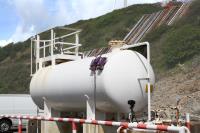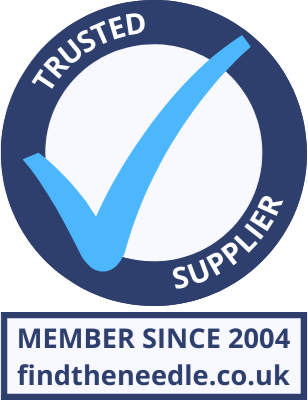 Add My Company
Add My Company
Sign In
Testing conditions for tank testers
16-06-2016

In addition to the financial implications of the loss of product, leakage from storage tanks can cause serious environmental damage and represent a grave threat to health and safety. In some circumstances, particularly when the stored materials are combustible or explosive, leakage can result in a major incident involving the loss of life and substantial damage to assets and to an organisation’s brand. Regular inspection of tanks is therefore essential in order to identify any potential for future leaks, arising from corrosion, damage or insufficient material thickness or strength.
The variability in tank type, age and condition means that a wide variety of technologies are required in order to conduct effective inspections. The data derived from this work is used to inform an effective tank maintenance, repair and replacement programme. A rigorous inspection programme therefore reduces risk and avoids downtime; protecting sites from environmental and safety impacts, and the costs associated with decontamination and clean up.
Steve Drake, Ashtead’s NDT Market Manager, believes that the most efficient approach to the maintenance of tank structural and operational integrity is based on a flexible non-intrusive inspection programme. He says: “Routine calendar-based inspections that rely on historical data, such as fabrication material and age, risk ignoring current conditions and environmental factors. In contrast, we have customers using a range of inspection instrumentation that enables the assessment of current tank condition, often without interrupting tank service, so that an appropriate inspection frequency can be determined.
“By employing a range of technologies, inspection engineers are able to ensure that all potential risks are assessed, and that inspection frequency is optimised to minimise costs.”
Inspection also helps demonstrate compliance with relevant standards and codes, and provides reliable data on tank capacity; ensuring safe storage of materials such as chemicals, petroleum products and liquefied gases in both underground and above ground tanks.
A wide variety of technologies are employed for the inspection of tanks, and these instruments are amongst the most popular in Ashtead Technology’s fleet of rental equipment. The company’s customers are able to select instruments for Non Destructive Testing (NDT), providing data for thickness, corrosion, cracks, flaws and weld integrity. Remote Visual Inspection (RVI) instruments are also available to inspect the difficult to access locations that exist inside most tanks.
Tank inspection case study – anaerobic sludge digesters
An Ashtead Technology customer was contracted by a UK utility to inspect its anaerobic digestion (AD) tanks. In applications involving potentially explosive gases, an intrinsically safe certified push-rod inspection camera is recommended. Following the development of a customised access point, inspection engineers were able to produce comprehensive images and videos showing the condition of the digester’s roof and walls.
The tanks were fabricated in GFS (Glass-Fused-to-Steel), a material which combines the strength of flexibility of steel with the corrosion resistance of glass. Consequently, GFS is commonly employed in applications with aggressive environments such as those inside anaerobic digesters - high temperature, high humidity, methane and hydrogen sulphide. An intrinsically safe Pearpoint P374 camera system was used to inspect the AD tanks, in conjunction with a digital video recorder.
Commenting on the success of the project, Ashtead’s customer said: “We built a customised ‘launch tube’ on one of the purge points on the roof and attached nylon to the camera tip so that we could video every surface once the probe was lowered into the ‘live’ digester.
“We were delighted with the results of the survey because we were able to demonstrate the condition of the tank very effectively, without having to decommission the digester.
“We were very impressed with Ashtead Technology because they ensured that we utilised exactly the right kit, and it was delivered and collected very quickly, which helped keep our costs to a minimum.”
A chemical manufacturer in the North West of England had a requirement to inspect a large stainless steel vessel. The contents of the vessel were typically saline and varied between 50 and 100 Deg C, so the site managers were concerned that stress corrosion cracking might be a possibility.
Inspection engineers believed that Eddy Current Testing with the Eddyfi Ectane Surface Inspection System Ectane would be ideal for this application, so an Ectane was taken to the customer’s site to provide a demonstration. To test the Ectane’s ability to detect stress corrosion cracking in 10mm stainless steel, the client provided a test sample for inspection, and a flaw was correctly identified. As a result, Ashtead’s customer was awarded a contract to inspect the vessel and an Ectane was hired specifically for this purpose.
The Ectane is a multi-technology test instrument, and in addition to Eddy Current Testing, it is also able to perform Eddy current array (ECA), Remote-field testing (RFT), Near-field testing (NFT), Magnetic flux leakage (MFL) and Internal rotating inspection system (IRIS) ultrasonic tube testing.
The external inspection of the vessel took around 2 hours and covered a surface area of around 16m2 and the vessel was found to be free from any detectable stress corrosion cracking. Commenting on the effectiveness of the inspection technology, Ashtead’s customer said: “We have been very pleased with the Ectane; eddy current testing worked very well and at just 7Kg and battery powered, the instrument has been well designed for field applications.
“Our engineers wore rubber boots, gloves and goggles, but the Ectane was still simple to operate, partly because it can be run independently of a computer. Once the work was complete, the instrument was connected to an office PC running ‘Magnifi’ software, which is supplied with the instrument, and this provided a quick and easy method for analysing the data and helping to produce reports.”
Specialist tank inspection technology
In addition to a wide range of NDT and RVI equipment, Ashtead’s fleet of rental instrumentation now includes some of the latest technology for fast, effective tank inspection. For example, Silverwing, a leading manufacturer of NDT solutions for
storage tanks, vessels and pipe inspection, has appointed Ashtead Technology as its Preferred Rental Partner in the UK. The Silverwing products offer motorised magnetic inspection; the Scorpion for example, can inspect vertical, curved and even overhead surfaces.
Designed for cost-effective A and B-scan inspection on ferro-magnetic structures, the Scorpion is a dry-coupled UT crawler that connects with the UT Lite data acquisition instrument via a 30 meter umbilical cord. This removes the cost and safety issues associated with scaffolding or rope access. The UT Lite is a portable corrosion profiling, mapping and weld inspection system that can also be used in conjunction with the R-Scan; a manual, dry-coupled ultrasonic scanner for a wide variety of assets ranging from 50 mm diameter pipes to flat surfaces.
Other Silverwing additions to the Ashtead Technology fleet include the RMS2 (Rapid Motion Scanner) a high speed (17m2/8 hour shift), high accuracy, remote access ultrasonic corrosion mapping system and the RMS2 ARC accessory for longitudinal scanning on pipe diameters from 24” to 48”.
Summarising the importance of technology selection, Steve Drake says: “Every tank is different; not just in age and material of construction, but also in build quality and operational conditions. The environment can also have a significant impact on tank quality and integrity, as can operational conditions.
“It is vitally important that all potential risks are assessed, which is why we offer such a wide range of the latest technologies; offering customers the opportunity to make sure that they use the most appropriate inspection tools for every tank or vessel.”
For more information on Testing conditions for tank testers talk to Ashtead Technology Ltd
Enquire Now
More News
List your company on FindTheNeedle.

